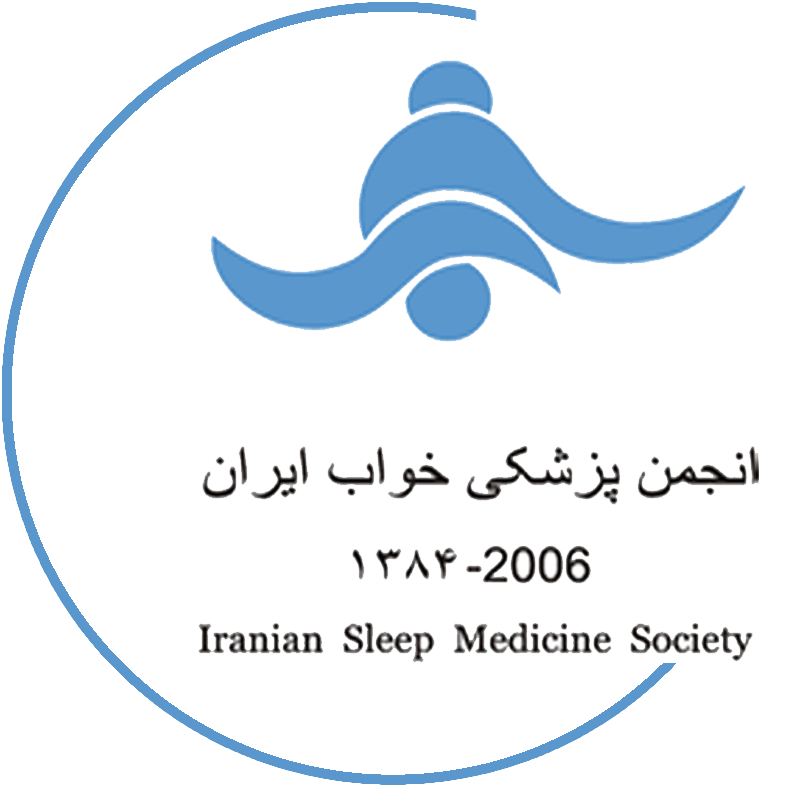Mood and Psychological State in Patients with Obstructive Sleep Apnea (OSA) Referring to Sleep Laboratory
Abstract
Background and Objective: Obstructive sleep apnea (OSA) is associated with increased sympathetic activity, sleepiness, mood, and psychological alterations. In this study, mood and psychological state of patients referring to sleep laboratory were assessed.
Materials and Methods: Fifty-eight consecutive individuals eligible for participation in the study were assigned to one of two groups of normal and mild (n = 19), or moderate to severe OSA (n = 39) with apnea-hypopnea index (AHI) of ≤ 15, or > 15 per hour, respectively, based on their initial polysomnography. The mood status was evaluated using the profile of mood states (POMS).
Results: Amongst the six POMS subscales, only power-energy was significantly different between the two groups (P = 0.03). The total score of POMS, however, did not differ across the groups (P = 0.58).
Conclusion: According to the obtained results, it may be concluded that mood status and OSA are not related when POMS is used for evaluation of mood status
Ferrando M, Bagnasco D, Roustan V, et al. Sleep complaints and sleep breathing disorders in upper and lower obstructive lung diseases. J Thorac Dis 2016; 8: E716-E725.
Kelmanson IA. Snoring, noisy breathing in sleep and daytime behaviour in 2-4-month-old infants. Eur J Pediatr 2000; 159: 734-9.
Jaffe F, Markov D, Doghramji K. Sleepdisordered breathing: in depression and schizophrenia. Psychiatry (Edgmont) 2006; 3: 62-8.
Banno K, Kryger MH. Sleep apnea: clinical investigations in humans. Sleep Med 2007; 8: 400-26.
Choudhary SS, Choudhary SR. Sleep effects on breathing and respiratory diseases. Lung India 2009; 26: 117-22.
Spicuzza L, Caruso D, Di Maria G. Obstructive sleep apnoea syndrome and its management. Ther Adv Chronic Dis 2015; 6: 273-85.
Patil SP, Schneider H, Schwartz AR, et al. Adult obstructive sleep apnea: Pathophysiology and diagnosis. Chest 2007; 132: 325-37.
Ejaz SM, Khawaja IS, Bhatia S, et al. Obstructive sleep apnea and depression: A review. Innov Clin Neurosci 2011; 8: 17-25.
Schroder CM, O'Hara R. Depression and obstructive sleep apnea (OSA). Ann Gen Psychiatry 2005; 4: 13.
Mbata G, Chukwuka J. Obstructive sleep apnea hypopnea syndrome. Ann Med Health Sci Res 2012; 2: 74-7.
Wu H, Zhan X, Zhao M, et al. Mean apneahypopnea duration (but not apnea-hypopnea index) is associated with worse hypertension in patients with obstructive sleep apnea. Medicine (Baltimore) 2016; 95: e5493.
Asghari A, Mohammadi F. Is Apnea-Hypopnea Index a proper measure for obstructive sleep apnea severity? Med J Islam Repub Iran 2013; 27(3): 161-2.
Nyenhuis DL, Yamamoto C, Luchetta T, et al. Adult and geriatric normative data and validation of the profile of mood states. J Clin Psychol 1999; 55: 79-86.
McNair DM, Lorr M, Droppleman LF. Profile of mood states (POMS): Statistics solutions [Online]. [cited 2017]; Available from: URL: http://www.statisticssolutions.com/profile-of-moodstatespoms
Lee IS, Bardwell W, Ancoli-Israel S, et al. Effect of three weeks of continuous positive airway pressure treatment on mood in patients with obstructive sleep apnoea: A randomized placebo-controlled study. Sleep Med 2012; 13: 161-6.
Redline S, Adams N, Strauss ME, et al. Improvement of mild sleep-disordered breathing with CPAP compared with conservative therapy. Am J Respir Crit Care Med 1998; 157: 858-65.
Yu BH, Ancoli-Israel S, Dimsdale JE. Effect of CPAP treatment on mood states in patients with sleep apnea. J Psychiatr Res 1999; 33: 427-32.
Povitz M, Bolo CE, Heitman SJ, et al. Effect of treatment of obstructive sleep apnea on depressive symptoms: Systematic review and meta-analysis. PLoS Med 2014; 11: e1001762.
Quan SF, Budhiraja R, Batool-Anwar S, et al. Lack of impact of mild obstructive sleep apnea on sleepiness, mood and quality of life. Southwest J Pulm Crit Care 2014; 9: 44-56.
Bardwell WA, Moore P, Ancoli-Israel S, et al. Fatigue in obstructive sleep apnea: driven by depressive symptoms instead of apnea severity? Am J Psychiatry 2003; 160: 350-5.
Jackson ML, Stough C, Howard ME, et al. The contribution of fatigue and sleepiness to depression in patients attending the sleep laboratory for evaluation of obstructive sleep apnea. Sleep Breath 2011; 15: 439-45.
Baran AS, Richert AC. Obstructive sleep apnea and depression. CNS Spectr 2003; 8: 128-34.
Harris M, Glozier N, Ratnavadivel R, et al. Obstructive sleep apnea and depression. Sleep Med Rev 2009; 13: 437-44.
Lee MH, Lee SA, Lee GH, et al. Gender differences in the effect of comorbid insomnia symptom on depression, anxiety, fatigue, and daytime sleepiness in patients with obstructive sleep apnea. Sleep Breath 2014; 18: 111-7.
Haensel A, Norman D, Natarajan L, et al. Effect of a 2 week CPAP treatment on mood states in patients with obstructive sleep apnea: A double-blind trial. Sleep Breath 2007; 11: 239-44.
Habukawa M, Uchimura N, Nose I, et al. Emotional states and quality of life in patients with obstructive sleep apnea. Sleep Biol Rhythms 2005; 3: 99-105.
| Files | ||
| Issue | Vol 2 No 3-4 (2017): Summer-Autumn | |
| Section | Original Article(s) | |
| Keywords | ||
| Mood Sleep apnea Mental health | ||
| Rights and permissions | |

|
This work is licensed under a Creative Commons Attribution-NonCommercial 4.0 International License. |



